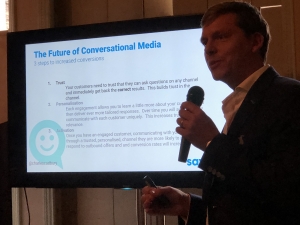For years, the future of work was promised as something sleek, frictionless, and liberating. Artificial Intelligence, the latest and most fashionable incarnation of this future, has now arrived in the office with the sort of inevitability usually reserved for government IT failures and train delays. But unlike those, AI appears to be sticking — and its impact on how we work and learn may prove more profound than either its evangelists or critics care to admit.
The headlines tend to swing between extremes. On one side, Silicon Valley prophets declaring that AI will transform the workplace into a utopia of efficiency, freeing employees from drudgery. On the other, unions and sceptics warning of mass redundancies, surveillance, and the death of human judgement. The truth, as ever, lies somewhere in between — and the most important battleground may turn out not to be jobs at all, but learning.
Workplace learning has long been a Cinderella function: tolerated, occasionally funded, but often poorly integrated into the real work of business. Training days are tick-box exercises, compliance courses dreaded rituals. AI promises to change that by making learning continuous, contextual and, crucially, personalised. Instead of generic modules, employees could have systems that know what they’re working on, where they’re struggling, and what skills they’ll need next.
This, at least, is the vision. The reality is still uneven. Early deployments of AI in workplace learning have been patchy: clunky chatbots that answer the wrong question, algorithms that recommend irrelevant content, or systems that drown staff in notifications. Yet there are signs of something better. Large employers are already experimenting with AI tutors, capable of tailoring support to individual workers in real time. For younger employees, used to on-demand everything, this is less novelty than expectation.
The question is whether British businesses — often more cautious, less well funded, and saddled with legacy systems — can keep up. There is a risk of a two-tier workplace: those with access to intelligent learning tools and those without. In sectors like healthcare, manufacturing, and transport, that divide could have real consequences for safety and productivity.
Then there is the matter of trust. Workers are understandably wary of systems that both train them and track them. If AI is to help people learn, it must be seen as a partner, not a spy. The difference between supportive feedback and algorithmic micromanagement is fine — and easily crossed.
For all that, the potential is hard to ignore. If Britain is serious about improving productivity — stagnant for more than a decade — then AI in workplace learning offers one of the few genuinely new levers to pull. It will not replace the need for good managers, motivated staff, or decent pay. But it could finally drag workplace learning out of the seminar room and into the flow of daily work, where it belongs.
Whether that happens will depend less on the technology and more on whether employers choose to use it well. AI can make learning sharper, faster, and more relevant. But if it becomes just another compliance tool or cost-cutting exercise, its promise will evaporate as quickly as the last set of management fads.
Learn more at:
https://webanywhere.com



